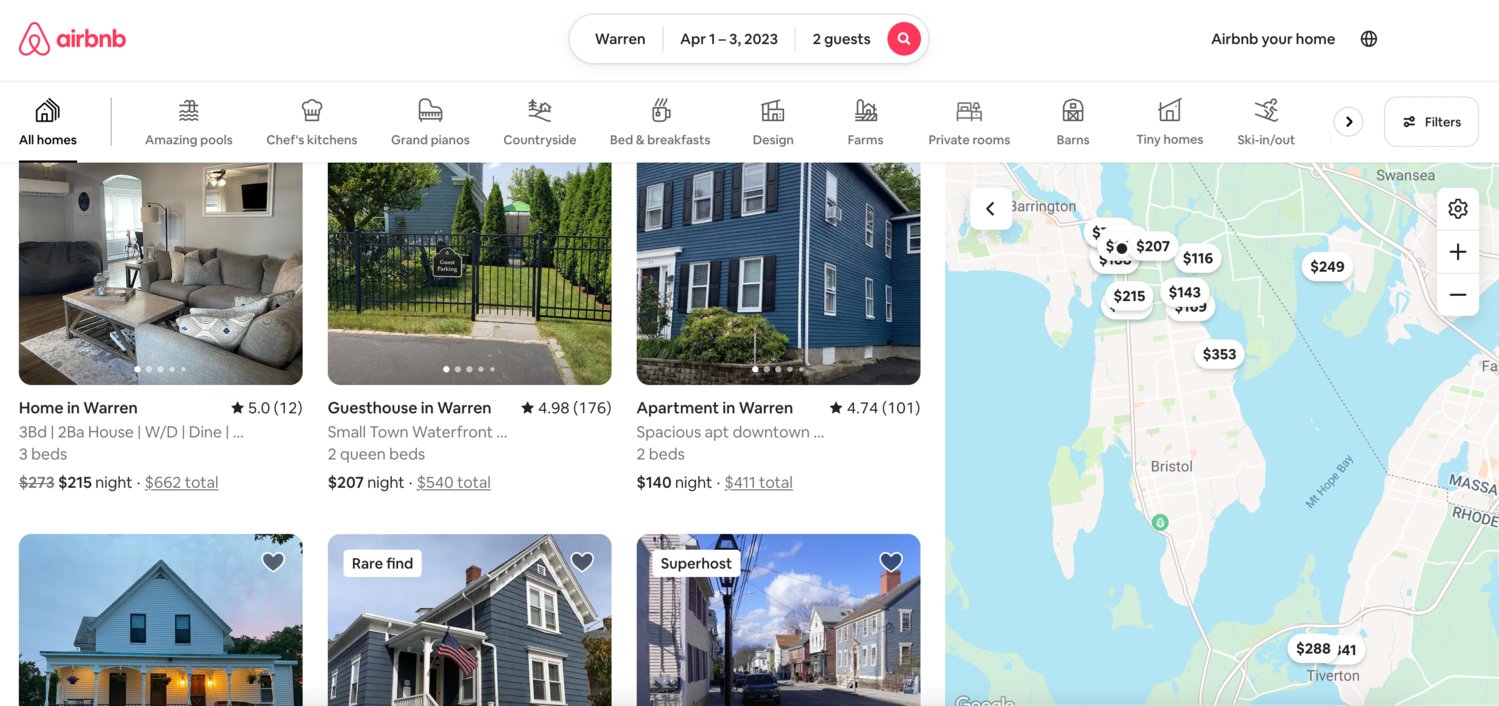Short-term rental law in Warren would cap total units, mandate parking
The Warren Town Council agreed unanimously on the first passage of a proposed ordinance that would cap the total number of short-term rental units allowed in town, set up a registration requirement, and enforce a parking requirement.
This item is available in full to subscribers.
Please log in to continue |
Register to post eventsIf you'd like to post an event to our calendar, you can create a free account by clicking here. Note that free accounts do not have access to our subscriber-only content. |
Day pass subscribers
Are you a day pass subscriber who needs to log in? Click here to continue.
Short-term rental law in Warren would cap total units, mandate parking
The Warren Town Council agreed unanimously on the first passage of a proposed ordinance that would cap the total number of short-term rental units allowed in town, set up a registration requirement for new short-term rental units, and enforce a parking requirement that would be overseen by the council.
The ordinance is the result of multiple conversations going back to last year regarding the situation regarding short-term rentals in town as provided by companies such as AirBnB and Vrbo, and stems from the council’s desire to preemptively pass legislation that would safeguard Warren from consequences being experienced in other Rhode Island municipalities and locations across the country — such as quality of life issues, parking congestion, and over-saturation of short-term rental units affecting the local housing stock.
Before deliberating on the draft ordinance prepared by Town Manager Kate Michaud and Town Solicitor Tony DeSisto, the council heard a presentation from Derrik Trombly, the chairman of the town’s economic development board.
Trombley summarized from their review that calculating the exact economic impact of short-term rentals was difficult, because the subsidiary benefits from transient tourism in town is difficult or impossible to determine; such as how many people staying in Warren during short-term rentals patronize local shops and restaurants.
However, he reported that the possible negative consequences were more apparent.
“We’re already in an affordable housing crisis and we’re already seeing the impacts of rising rents and additional costs that are hurting our local residents,” Trombley said. “Certainly we don’t want the short-term rental industry to balloon as it has in areas like Newport, where entire streets are dedicated solely to short-term housing that can negatively impact the character of the neighborhood.”
Trombley recommended parroting similar ordinances in other Rhode Island communities, such as Newport, which charges a $100 registration fee, and Westerly and East Providence, which require a local representative to be available to respond to issues that might arise from short-term renters.
“It’s a balance between allowing short-term rentals, which are an economic driver, but limiting them at the same time so that we don’t have a totally transient community,” said Councilman Brandt Heckert. “So how do we limit them? What restrictions do we put on them to get that balance, is what it comes down to.”
A cap on total units
The ordinance, which unanimously passed its first reading and will become local law if the council approves it during their February meeting, seeks to set certain requirements for short-term rental owners and occupants moving forward.
It would cap the total number of short-term rental units in town at 125. According to Michaud, the number of units already operating in Warren was around 70. That data came from a third-party short-term rental database, AirDNA. The state’s own database had only received confirmation from about 30 units in Warren, despite a deadline of Jan. 1, 2023 for short-term rental operators to register.
Additionally, the ordinance would limit the number of short-term rental units that can be registered per dwelling. For buildings with 2-5 units, the number of short-term rental units would be capped at 50% of the total number of units. So a multi-family home with three separate units, for example, would only be able to utilize one of those units for a short-term rental.
A local representative must be on call
The council also came to a consensus regarding a local representative; stopping short of requiring that owners of a building used for short-term rentals must live in that building, but compromising that a local representative who has a presence in Bristol County must be on call to respond to any issues that arise from guests occupying the short-term rental.
“I don’t care if they’re on Jupiter or they’re next door — when the phone rings, they answer it,” said council Vice President Steve Calenda.
Parking requirement and fees
The council agreed that the ordinance would include a requirement that all short-term rental owners must provide one space of off-street parking for each rental unit associated with the property. If they are unable to do so, they will have the opportunity to appear before the Town Council in order to apply for a waiver of the requirement, or propose an alternative parking option for guests.
Lastly, the council agreed on a fee structure for new short-term rental owners who register. A “home town discount” was provided in the ordinance, amounting to an annual, $50 fee for owners who reside in Warren. For all other owners, the registration fee would be $100 per year.
The ordinance includes requirements that each short-term rental unit be subject to inspections by the Warren Fire Marshal or Fire Chief at their discretion. Violations of the ordinance will result in a fine of not less than $500, and not more than $1,000 for each day that the violation is not remedied, and may face a $500 late fee for fines not paid within seven days of their issuance.






